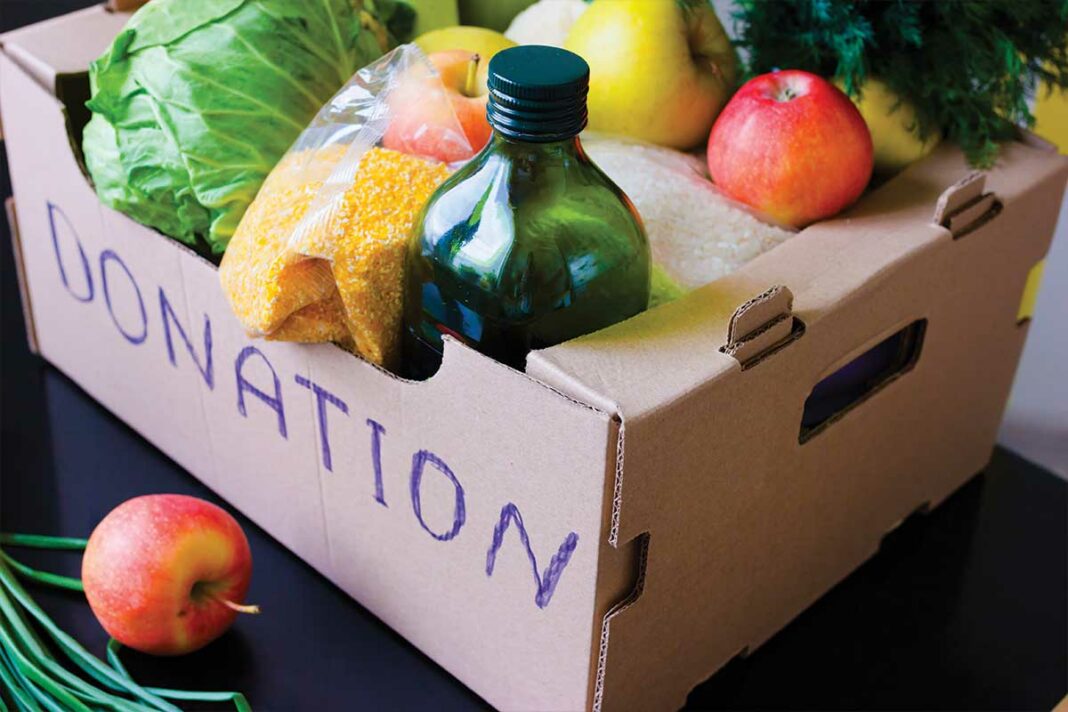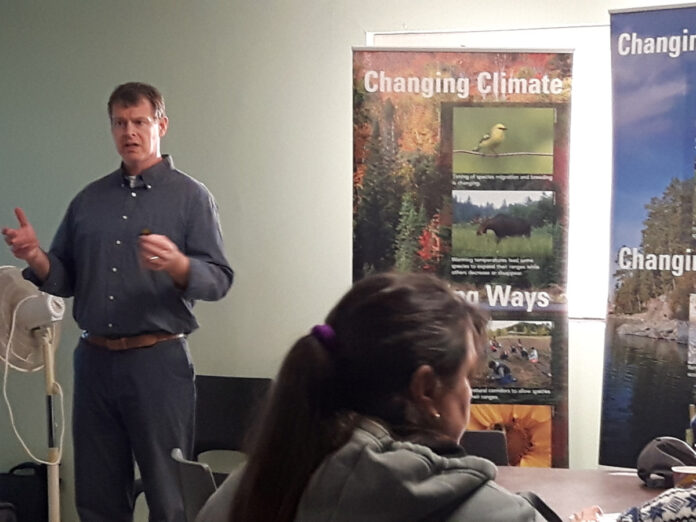MINDEMOYA—The 2023 Manitoulin Family Resources (MFR) Christmas Hamper campaign is nearly ready to get underway and, given the rising number of people accessing the MFR Food Bank, the need has never been greater.
“We are just finishing up the details of the campaign,” said MFR Food Security Program Coordinator Vanessa Glasby. “We are just waiting on Wiikwemkoong to determine who will be doing what this year.” Wiikwemkoong Unceded Territory has started its own food bank program, located below the Ontario Works offices in the village of Wiikwemkoong. “Then we will have a better idea of the number of hampers,” she said.
MFR is currently accepting referrals from partner agencies, ,and from clients directly, to build this year’s list. “It’s still in the early stages for us,” said Ms. Glasby.
But that doesn’t mean donors have to wait for the official launch to lend a hand, especially when it comes to cash. “Cash is big for us,” said Ms. Glasby. The beauty of a cash donation is that it provides flexibility and the ability to provide fresh food to complement the dry goods and canned food that comes in to the food bank as donations.
“But non-perishable food items are always welcome,” she said. Examples of what is most in demand are dry cereal, peanut butter (a big favourite), Kraft Dinner and other pastas and canned protein. “Canned tuna, chicken and/or ham help provide protein to our clients’ diets,” continued Ms. Glasby. “Also, when it comes to Christmas, stuffing is popular and the little extras that make the Christmas season so special.” Candy is another item that adds a bit of pep, especially for families with children.
“There has been a real growth in the number of people accessing the food bank, especially since COVID,” said Ms. Glasby. “The clients increase year over year.”
With rising inflation and the challenge to secure affordable housing, new pressures have come to the fore. “We are seeing an increasing number of working people reaching out,” she said. “There is a growing need and things are getting tight everywhere.” In that, the Island is not alone. Those trends are showing up across the province and the country.
The recently released Manitoulin Hunger Report highlights those trends locally. The report notes that between March 31 and April 1 of 2023, MFR has served 4,289 individuals, a 37 percent increase from 2018-2019.
Of the 1,569 households that visited during the March-April period, 28 percent were coming to the food bank for the first time. Those include recent residents of Manitoulin Island communities who found themselves faced with the “ongoing challenges of rural living.” But it isn’t just newcomers—the bulk of the food bank clients are people who have lived on Manitoulin for many years and simply cannot keep up with the cost of living.
The need is greatest in First Nations communities, according to the Manitoulin Hunger Report. Households residing on reserve made up 68 percent of those coming into the food bank. The report suggests that overrepresentation can be linked to “Canada’s history of colonization and the ongoing impacts of separation from Indigenous culture.”
Distance also plays a role, as the least represented among the clients are those coming from the communities farthest from the food bank in Mindemoya—likely a factor resulting from the Island’s lack of public transportation and the high cost of travel.
Child poverty may be on the decline nationally, but a sobering fact is that while the most prevalent food bank visitors are between the ages of 25 to 35, 40 percent of those served were between the ages of zero and 17—comprising more than a third of all visitors.
The holes in our province’s safety net are on clear display, as 64 percent of households accessing the food bank services report social assistance as their primary source of income, one of the few things that has remained a constant down through the years. Only six percent of those using the food bank are employed, either part-time or full-time. Precarious employment is definitely on the rise as evidenced by the rise in usage in that group from previous years—a fact born out in provincial studies as well.
To find out more about how you can help MFR in meeting the growing challenges of food insecurity, contact info@mfresources.net. A donation button can be found on the MFR website at mfresources.net or donations can be sent by cheque to Manitoulin Family Resources, PO Box 181, Mindemoya, ON, P0P 1S0. Every little bit helps.





